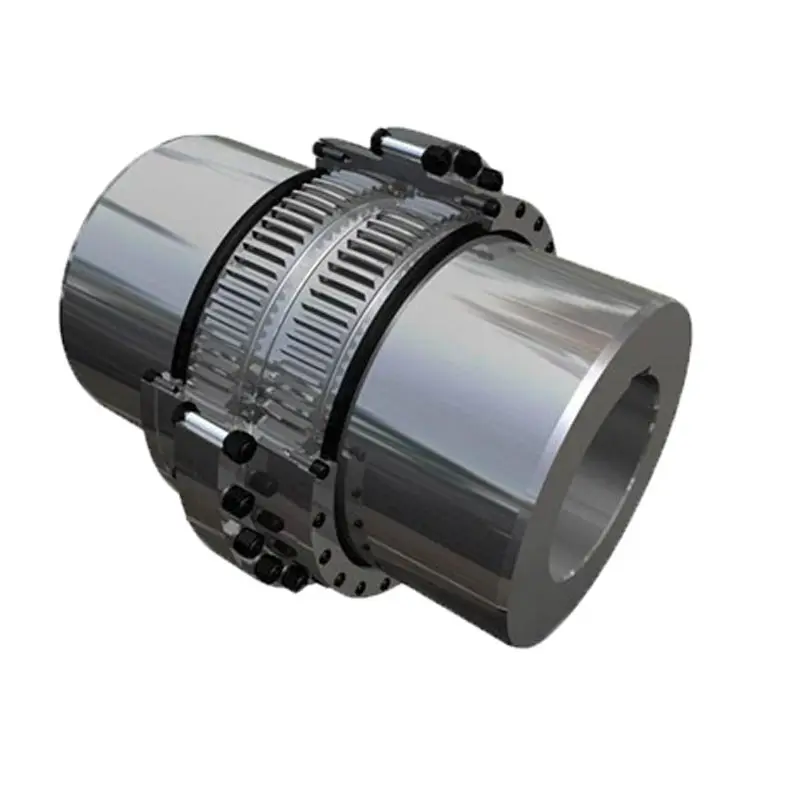Product Description
Product Description
Gear Coupling is used to join 2 rotating shafts for efficient transmission of mechanical power.
Although the shafts are accurately aligned at the time of installation, it is likely that during the operation the alignment may get disturbed due to setting of foundation, thermal expansion, shaft deflection, wearing out of other parts, improper maintenance and many more reasons. Due to this unavoidable misalignment occurring during the operation a gear coulping provides a better solution to compensate or minimise the effect of misalignment.
The gear Couplings are therefore idealy suited for wide range of application in the entire field of drive technology.
Heavy-duty made and tailored disign is our core competitiveness and we have been committed to providing technical support and solutions to customers.
Detailed Photos
Materials Used in Manufacturing Gear Couplings
Gear couplings are designed to transmit torque between shafts while accommodating misalignment. To ensure the durability and reliability of gear couplings, manufacturers use a variety of materials, each with its specific properties. Commonly used materials in manufacturing gear couplings include:
- Steel: Steel is the most widely used material for gear couplings. It offers excellent strength, durability, and resistance to wear and fatigue. Steel gear couplings are suitable for a wide range of applications, including heavy-duty industrial machinery.
- Stainless Steel: Stainless steel is chosen for gear couplings that require resistance to corrosion and high-temperature environments. Stainless steel couplings are commonly used in food processing, pharmaceutical, and chemical industries.
- Alloy Steel: Alloy steel is utilized to enhance specific properties, such as increased strength and improved performance under high loads and extreme conditions. Alloy steel gear couplings are ideal for demanding applications in heavy industries.
- Cast Iron: Cast iron is known for its excellent machinability and good resistance to wear. Cast iron gear couplings are suitable for low to moderate torque applications and can be cost-effective in certain scenarios.
- Non-Metallic Materials: In some cases, non-metallic materials like nylon or urethane may be used for specific gear coupling applications, especially in situations where electrical isolation or chemical resistance is required.
The choice of material depends on the application’s demands, including the torque, speed, environmental conditions, and budget considerations. Gear coupling manufacturers carefully select materials that will provide optimal performance and longevity while meeting the specific requirements of the intended application.
editor by CX 2023-10-07


